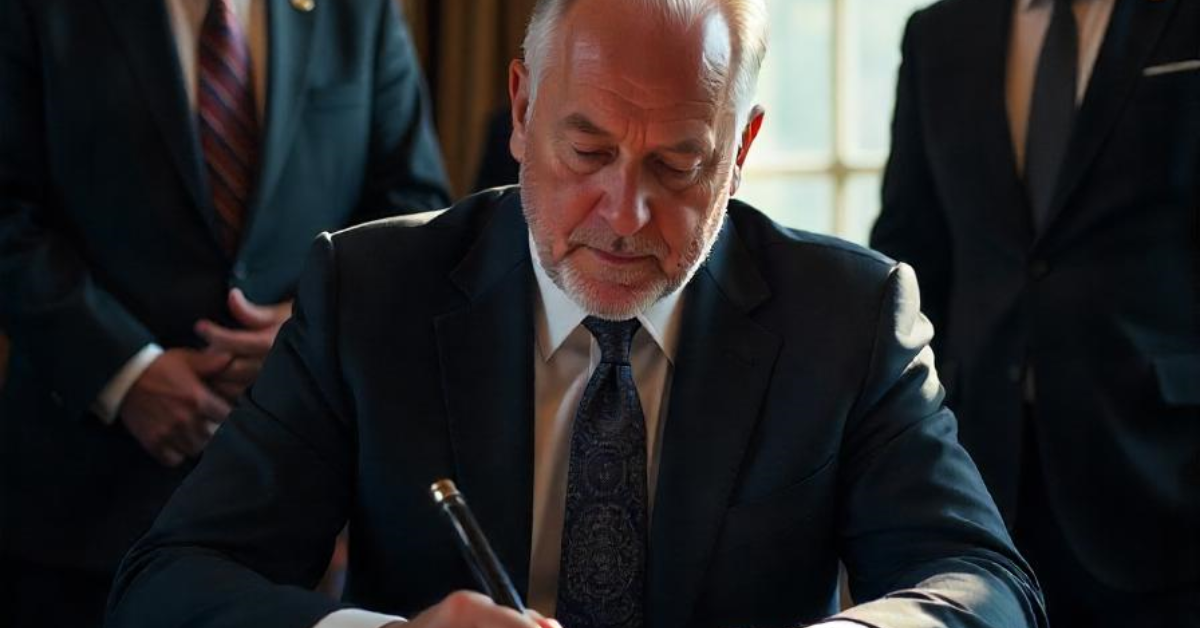The Montana Bitcoin reserve bill is only a few steps from becoming law. The state’s House Business and Labor committee just passed House Bill 429 and now waits for a House floor vote.
According to details on LegiScan, House Bill 429 was passed strictly along party lines with a 12 to 8 vote, with all Republicans voting in favor while the Democrats voted against it. The decision makes Montana the fourth US state to advance such legislation to the House.

Law Will Take Effect on July 1 if Passed
The Montana Bitcoin Reserve bill proposes a special revenue account allowing the state to invest in Bitcoin, stablecoins, and precious metals. If approved by the House, the move would be a significant milestone for crypto adoption within state-level financial policies. House Bill 429 would allow the state of Montana to invest in digital assets whose market cap exceeds $750 billion. At the moment, Bitcoin is the only digital asset that meets the threshold, and it was trading at over $97K at the time of writing.
Other details of House Bill 429 have eliminated earlier requirements for a qualified custodian to hold the funds through an exchange-traded fund (ETF). Should the bill pass through the final stage, it will officially take effect on July 1, 2025, allowing the state’s treasurer to allocate not more than $50 million to a special account. The fund would invest in cryptocurrencies, stablecoins, and special metals beginning July 15, 2025.

Trump Fulfilling Election Pledge
The passing of the Montana Bitcoin reserve bill through the subcommittee stage highlights Montana’s intentions to offer flexibility in dealing with emerging digital investment and making it possible to incorporate crypto into state reserves. Legislative processes similar to House Bill 429 are already at different stages in other states, including Illinois, Kentucky, Maryland, New Hampshire, New Mexico, North Dakota, North Carolina, Ohio, Pennsylvania, South Dakota, and Texas.
Similarly, Wet Virginia State Senator Chris Rose introduced a bill similar to the House bill last week, seeking to allow the state’s treasury to allocate some of its funds to cryptocurrencies and precious metals. US President Donald Trump has already begun fulfilling his pre-election pledges to the crypto community. On January 23, 2025, Trump commissioned a crypto working group whose mandate includes exploring the feasibility of a federal cryptocurrency reserve, prompting the frenzy for similar initiatives among state players.

Utah Leads the Way
Only three other states, Utah, Arizona, and Oklahoma, have advanced their bills to the House level. However, Utah has become the first among equals for the progress made, as it is currently the only state almost passing a Bitcoin reserve bill through its House. According to Satoshi Action Fund CEO Dennis Porter, Utah could become the first state to formally adopt Bitcoin reserves due to its expedited legislative calendar and strong political backing.
Conclusion
As the Montana Bitcoin Reserve bill moves to the next stage, its outcome could influence the future of crypto regulation in the United States. A positive result will stimulate and encourage innovation within the crypto space. As different US states strive to take the pole position in this space, the emergence of regulatory clarity could lead to increased adoption that could see other countries following suit.
Frequently Asked Questions (FAQs)
What is a strategic reserve?
A strategic reserve is a stockpile of critical assets that protects national interests in the event of a disaster.
Does the US have other strategic reserves?
The US also stocks several other things, including petroleum, gold, and other metals and minerals.
Does the US already have a Bitcoin strategic reserve?
Any state that passes the bill will have the first-ever Bitcoin Strategic Reserve, marking the first time a digital asset has entered the US’s strategic reserve program.
What are the advantages of a Bitcoin reserve?
Unlike gold or petroleum, Bitcoin is a digital asset that won’t need physical storage. It is also immune to physical degradation or quality loss (unlike oil).
Appendix: Glossary of Key Terms
Bill: A proposed law that is introduced into a legislative body, such as a parliament or congress.
Bitcoin: A cryptocurrency designed to act as money and a form of payment outside the control of any one person, group, or entity
Stablecoin: A type of cryptocurrency whose value is pegged to another asset, such as a fiat currency or gold, to maintain a stable price.
ETF: Publicly traded securities that offer exposure to the price movements of futures contracts in bitcoin.
References




























